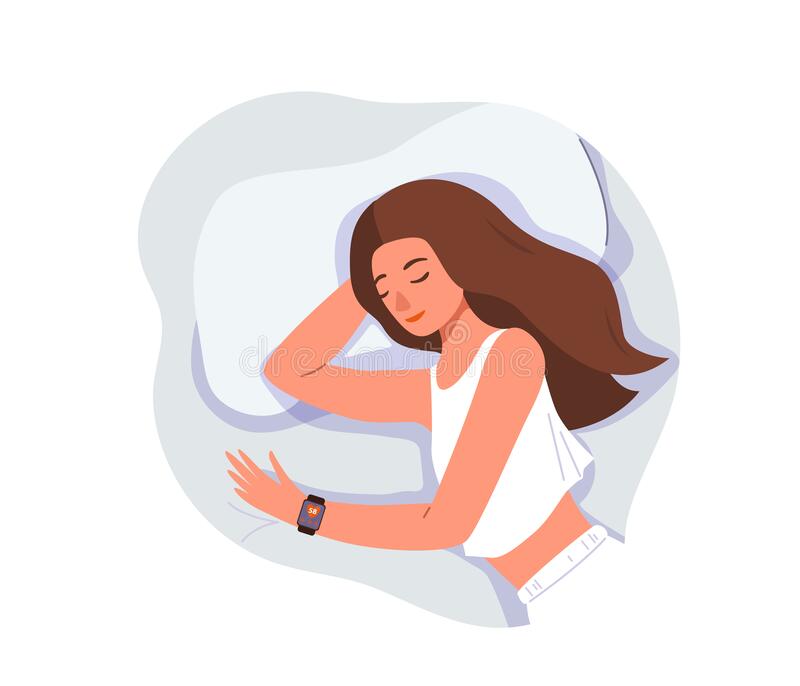Sleep has become one of the most important aspects of our health & we are always told to have at least 8 hours of sleep. Scientists consider sufficient & mindful sleep as essential for rest & repair. During our sleep, our subconscious mind takes over & our brain conducts a comprehensive threat assessment of stress faced by us during the day & figure out ways to reinstate our energy. Mindful sleep helps in boosting the immune system & fends of infection. In fact during sleep, our body is on active mode- working towards building, reinstating, repairing & retaining all information.
So what happens when you are having deficient sleep? Your recovery process is curtailed & compromised. There are numerous ways you can improve your sleep- one of them being breathing techniques-Meditation can help you regulate your circulatory level of cortisol(stress hormones). Taking shower with warm water can give you some relaxation from a stressful day. Avoiding blue light from electronics such as mobile, television, laptop or palmtops at least 2 hours before your sleep timing can help you give restful sleep since this blue light is said to stimulate signals in your body that can awake you a bit longer than usual. These are some of the ways you can be sure of good & mindful sleep. However even if after adopting these sleep strategies, you are experiencing erratic sleep patterns, there is something else which is playing a spoilsport.
Here enters the most important organ of your body- your gut. Gut has an important role to play in various physiological & biological processes. It regulates hormonal balance, aids in metabolism, provides nutrients to our body, modulates our immune system & maintains relationship with brain activity. When the sun sets & we are not exposed to light, biological changes take place inside the body which directly impacts our circadian rhythm. This biological clock impacts how easily we wake up. In normal situations when we are following circadian rhythm, things are fine. However when we change our sleep-wake cycle, it can disrupt certain signals. For instance, during the weekend you generally make changes in your sleep routines that disrupt your circadian rhythm.
Any disruption in sleep wake cycle & poor dietary choices can imbalance your gut microbiota & even lead to sleep insomnia. Let us discuss how your gut microbiome has a role to play in poor sleep practices:
- Gut-brain axis: Gut & brain are connected to each other through vagus nerve & send signals to each other through gut-brain connection. These chemical messages sent from gut to brain & vice versa modulates our hunger, digestive health, stress & emotional state of mind. Our gut can also influence & change these signals for good or worse. The same vagus nerve or axis which is used to regulate digestive health can also influence our heart beat & mood. When gut is imbalanced it may lead to leaky gut & allow inflammatory metabolites to travel to brain through vagus nerve which can not only impact your mental state of mind but also disrupt your sleep patterns
- Regulating hormones: Under normal circumstances our gut produces neurotransmitter- serotonin that travels through this gut-brain axis(the vagus nerve) to the brain which regulates our mood, happiness & behavior. Serotonin is also a precursor to melatonin hormone, release of which stimulates our sleep. If your gut is imbalanced & is not able to release enough serotonin, it can impact our regular sleep patterns. This is further testified by the fact that people suffering from anxiety or depression also experience deficient sleep & erratic sleep patterns
- Training the immune system: Our gut is home to 70% of the immune system & essential interacts & trains the immune system. It gives signals to the immune system telling it what to do. When our gut is balanced, our immune system is working like a rocket ship- like a fighting machine & fending off all infections. However when our gut microbiome is imbalanced & our body is getting attacked by toxins & pathogens, our immune system becomes overactive in pursuit of killing those pathogens/destroying toxins & can disrupt normal activities. This can impact our sleep cycle. Gut dysbiosis for a prolonged time can lead to leaky gut which makes microbes penetrate through intestinal lining & can even reach our lungs which impacts breathing at night & disrupt our sleep.
It is clear that optimising our gut health has a bigger role to play in regulating our sleep patterns. Therefore if you are experiencing sleep issues & have resorted to all measures such as meditation to normalise your sleep but have not been successful, probably gut dysbiosis is to be blamed. Adopting the right dietary choices that reinstates your gut microbiome balance can help you overcome your sleep disorders. For more details, how we sequence your microbiome to provide your unique dietary recommendations that can overcome gut dysbiosis, hit us up here: www.genefitletics.com
Sources: https://www.sciencedaily.com/releases/2019/10/191028164311.htm
https://www.hopkinsmedicine.org/health/wellness-and-prevention/the-brain-gut-connection


Leave a Reply